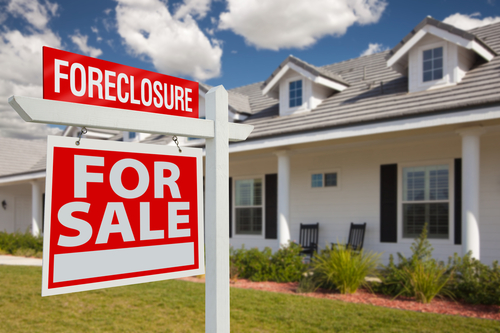A foreclosure is a traumatic experience, especially if you did everything in your power to remain current on your home loan and keep your property. Unfortunately, if you default and miss several mortgage payments, your lender has no choice but to foreclose.
A foreclosure has an effect on your future, but the damage doesn’t last forever. It is possible to rebuild your credit, and luckily, the foreclosure disappears from your credit report after seven years.
But although your long-term outlook may seem brighter, you’ll still have to deal with the immediate effects and understand how a foreclosure affects your future now.
1. It is harder to rent a house
After a foreclosure, it may be harder to rent a house or an apartment. Some landlords check credit reports, so they’ll likely see a foreclosure in your recent past. As a result, they may charge a higher security deposit or require a cosigner on the lease. A cosigner is someone with an excellent credit history. This person doesn’t have to occupy the home or apartment, but they are responsible for the rent payment if you terminate the lease early.
2. It can kill your credit score
Foreclosures can destroy your credit score. And unfortunately, the higher your credit score before the foreclosure, the more points you’ll lose. On average, a foreclosure can reduce your credit score by as much as 300 to 200 points.
3. It takes time to qualify for another mortgage
There are many causes of a home foreclosure, and in most cases, a foreclosure has nothing to do with your level of financial responsibility. A foreclosure can happen after a job loss, a divorce or an illness. But even if you get back on your feet soon after losing your home, it can be a while before you’re able to purchase again.
Typically, you’ll have to wait between three and seven years before you can qualify for another mortgage. The wait period depends on the type of home loan and the lender. For example, if the foreclosure was due to extenuating circumstances such as an illness, and your mortgage was current before this setback, a lender may approve your home loan application after only three years. However, other lenders might not offer an approval until after you’ve hit the seven-year mark.
4. You may need a 10% down payment
If you’re able to qualify for another mortgage before a foreclosure falls off your credit report, some lenders will require a higher down payment, despite the fact that you’ve rebuilt your credit. These lenders may require a minimum down payment of 10% instead of the normal 3.5% and 5% which is typical with FHA and conventional home loans.
5. It could affect other areas of your life
Not only does a home foreclosure make it harder to rent an apartment, it can also affect other areas of your life. A bad credit rating makes it harder to qualify for certain types of jobs, especially those in the finance industry. Additionally, if you apply for certain insurances, you may pay a higher premium. Some utility and cell phone providers will also require security deposits because of your lower credit rating.








